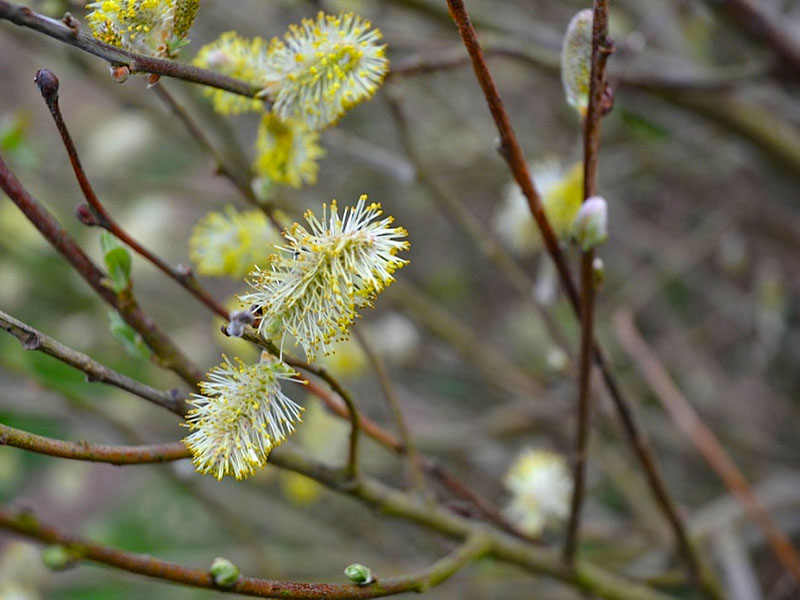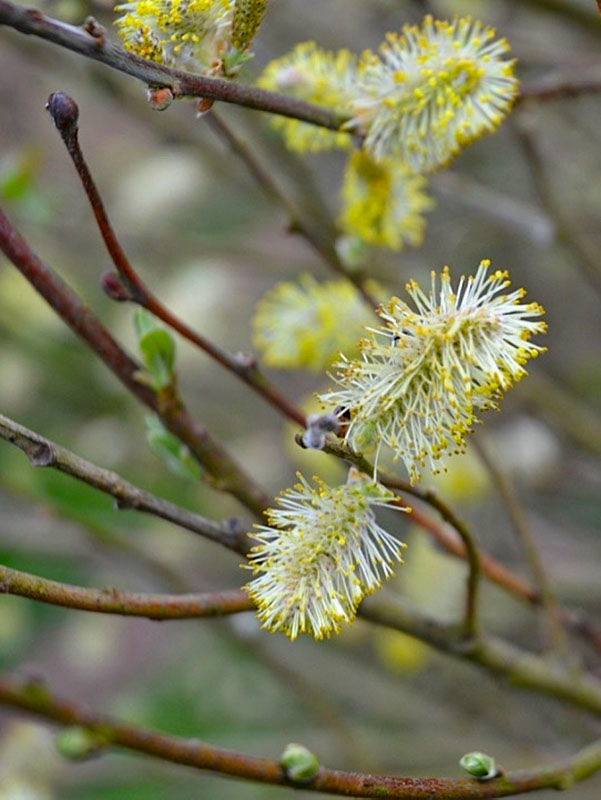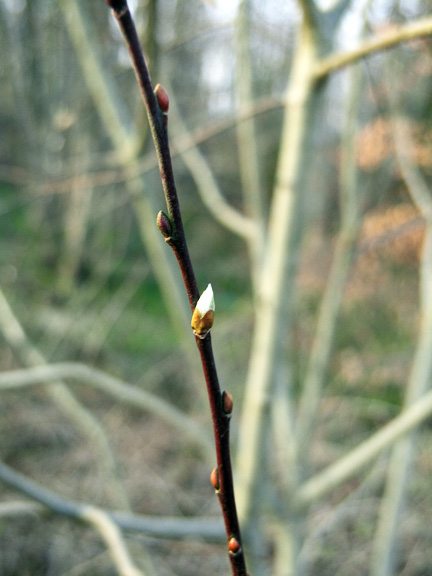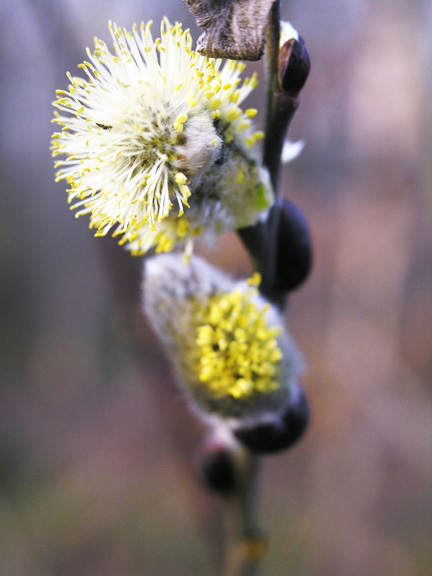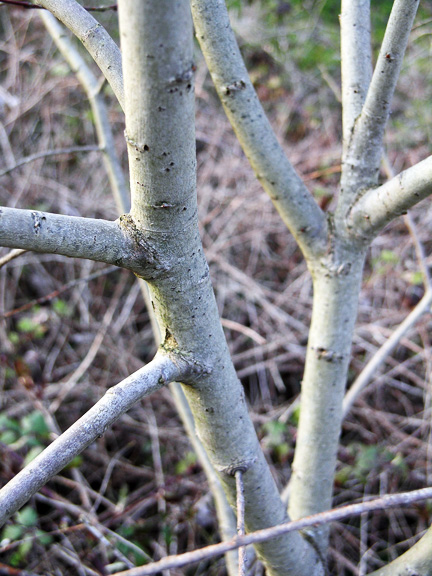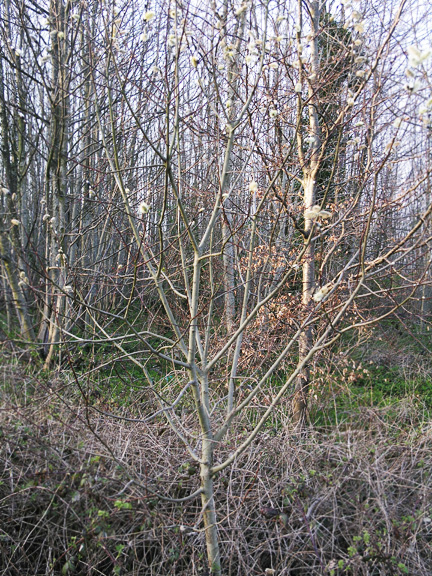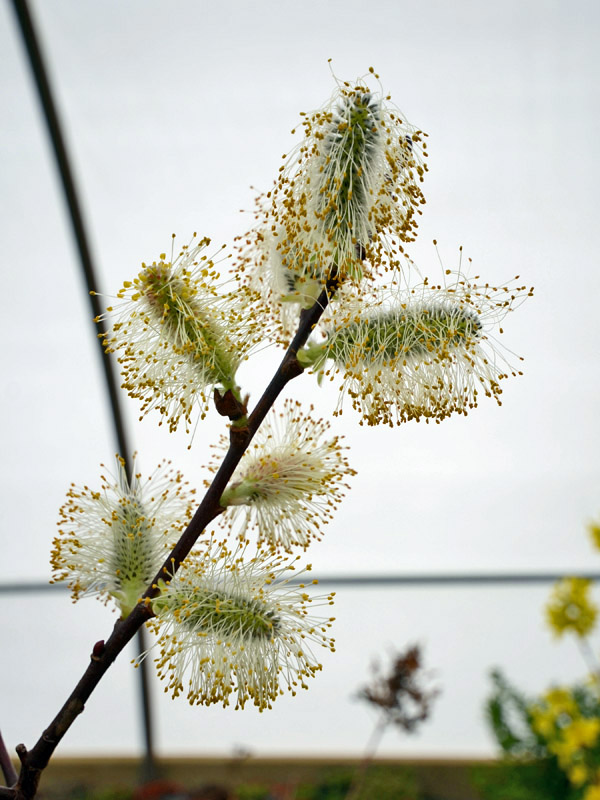
Woody > Salix > Salix caprea > Salix caprea
Salix caprea
Goat Willow
| Family |
| Salicaceae |
| Genus |
| Salix |
| Species |
| caprea |
| Category |
| Woody |
| Type |
| Tree (deciduous) |
| Pronunciation |
| USDA Hardiness Zone |
| 4-8 |
| Canadian Hardiness Zone |
| 5-9 |
| RHS Hardiness Zone |
| H7 |
| Temperature (°C) |
| -28 |
| Temperature (°F) |
| -20 |
| Height |
| 10 m |
| Spread |
| 4 m |
Photographs
Description and Growing Information
Flowering Period
| Cultivation |
| Salix caprea roots very easily. Cuttings placed in moist soil are likely to produce roots within a few weeks. Likes full sun and moist soils. |
| Shape |
| Rounded crown. |
| Growth |
| Fast |
| ID Characteristic |
| 1 cm male catkins in March and early April, purplish-brown buds. |
| Pests |
| Susceptible to galls, leaves are eaten by browsing mammals. |
| Habitat |
| Grows along the sunny edges of woodlands, along lake shores and river banks. |
| Bark/Stem Description |
| Yellowish brown stems with rough fissured brown older bark. |
| Flower/Leaf Bud Description |
| 5 - 10 mm long purplish brown. |
| Leaf Description |
| Dark green spring colour, yellow autumn colour. Alternate leaf arrangement, simple leaves 5-10cm long and 2.5 - 5 cm wide. |
| Flower Description |
| Catkins are surrounded by blackish scales, the catkins are densely haired with yellow anthers. |
| Fruit Description |
| Greenish brown small capsule 5 - 10 mm with white fluff on the seeds. Long. |
| Colour Description |
| Dark green summer foliage followed by yellow autumn foliage with Dark brown bark. |
| Texture Description |
| Medium-fine. |
| Notable Specimens |
| St Agnes Head, Cornwall, United Kingdom. |
| Propagation |
| Cuttings placed in moist soil will start to root in a few weeks. Cuttings will also root in a vase of water. |
